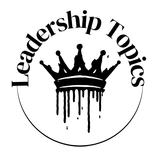You’ll Never Hear a Natural Leader Ask This One Question
Difference between natural leaders and others: the one question they never ask. Learn how to build leadership confidence, trust your instincts, and lead with authority.

Confidence and certainty are two of the most magnetic traits in a leader. People are naturally drawn to someone who says with authority, “We need to go there!” Whether or not that destination is ideal, followers are often ready to go along for the ride simply because of the leader’s conviction.
These qualities define a natural leader—someone who wields confidence like a scepter, drawing others into their orbit. From an early age, such individuals seem to take control of their environment, never doubting the correctness of their decisions. And along the way, there’s one question these leaders rarely ask: “Am I doing this right?”
For natural leaders, the very act of doing something is proof enough that it must be right. This unshakable belief in their own instincts and abilities separates them from others who are frequently paralyzed by self-doubt or second-guessing.
Steve Jobs and the Confidence of Natural Leaders
Take, for example, the late Steve Jobs, co-founder and former CEO of Apple. Jobs, a quintessential natural leader, was known for his refusal to rely on focus groups or outside validation. He didn’t ask consumers whether they wanted an iPod, iPhone, or iPad. He didn’t wonder if they would embrace the revolutionary products Apple was developing. Instead, he told the world what they needed and insisted that Apple’s products were “insanely great.” His confidence didn’t just build a company—it shaped entire industries.
By contrast, most people constantly ask themselves:
- “Am I doing this the right way?”
- “How will others perceive me?”
- “Am I standing out, or do I look ridiculous?”
But natural leaders don’t ask these questions. Their certainty allows them to lead boldly, without needing constant reassurance from others. It’s this innate confidence that often pulls others into their orbit, making them magnetic and persuasive.
Learning to Trust Your Instincts
Not everyone is born with the instinctive confidence of a Steve Jobs. For many aspiring leaders, self-doubt is a constant companion. But the good news is that confidence can be cultivated.
It begins by learning to trust your instincts and quieting that inner voice of doubt. Whether it’s fitness instructors reminding you to “listen to your body,” or jazz musicians encouraging creative expression with no fear of mistakes, the key to building leadership confidence lies in trusting yourself.
Miles Davis, a jazz legend, famously said, “Do not fear mistakes. There are none.” This philosophy applies not only to art but also to leadership. The most effective leaders trust that their decisions are right because they have honed their instincts over time—and they move forward with conviction.
The Difference Between a Compass and Radar
One way to understand leadership is to think about two types of people: those with a strong internal compass and those with a finely tuned radar.
Natural leaders often have a powerful internal compass, guiding them to their own personal “true north.” They have a clear sense of direction and purpose, and they stick to their course, often pulling others along with them. They are focused, driven, and not easily distracted by outside influences.
By contrast, many others rely on a sensitive radar that picks up on external signals—how others feel, what others think, and the concerns people around them are expressing. These people are highly attuned to their environment but may struggle to maintain focus on their own agenda because they are constantly reacting to external stimuli.
A brilliant leader once remarked that the best leaders combine both—a strong compass to stay the course and a finely tuned radar to pick up valuable feedback. But when forced to choose between the two, he said, a leader must rely on the compass. Without it, you can’t lead effectively.
Building Your Leadership Compass
If you find yourself relying more on radar—constantly seeking validation or second-guessing your choices—it’s time to strengthen your internal compass. True leadership requires developing and trusting your own instincts. This doesn’t mean ignoring feedback or never adjusting your approach, but it does mean having a clear agenda that doesn’t waver at the first sign of criticism.
Leaders with strong compasses don’t panic when met with resistance. Instead, they stay focused on their goals and trust that they’re on the right path. Over time, this approach builds confidence, which in turn attracts followers.
Confidence Breeds Charisma
There’s a reason that natural leaders tend to have a “reality distortion field,” a term coined by those who worked closely with Steve Jobs. When they enter a room, the gravitational field seems to bend toward them. Their confidence is contagious, and people are drawn to their vision, even if it’s not fully formed yet.
Harvard evolutionary biologist E.O. Wilson notes that this dynamic spans across species. In wolves, monkeys, and humans alike, confidence and assertiveness are often rewarded with leadership roles. This is why confidence, more than any specific skill, often sets apart those who are naturally inclined to lead.
The Practice of Leadership Confidence
The good news is that confidence isn’t solely the domain of natural leaders. It’s a skill that can be developed with practice. The more you trust your instincts and act on them, the more your confidence grows. Over time, this self-assuredness becomes second nature, allowing you to lead with greater authority and charisma.
That said, even natural leaders could benefit from occasionally asking, “Am I doing this right?” while being open to feedback and counsel from others. But for those who struggle with too much self-doubt, leadership progress often begins with asking this question less frequently.
The Natural Leader’s Secret
Natural leaders don’t constantly question their decisions. Instead, they act with certainty and confidence, drawing people to follow them through their strong sense of purpose. But even if you’re not born with that innate leadership confidence, you can develop it by learning to trust your instincts, silencing self-doubt, and building a strong internal compass that keeps you on course.
The truth is, leadership is less about asking, “Am I doing this right?” and more about trusting yourself to find the right path.
The Leadership Topics
ART Walkway Highlights
For the latest trends in the art world, visit our sister magazine for in-depth features and exclusive insights:














